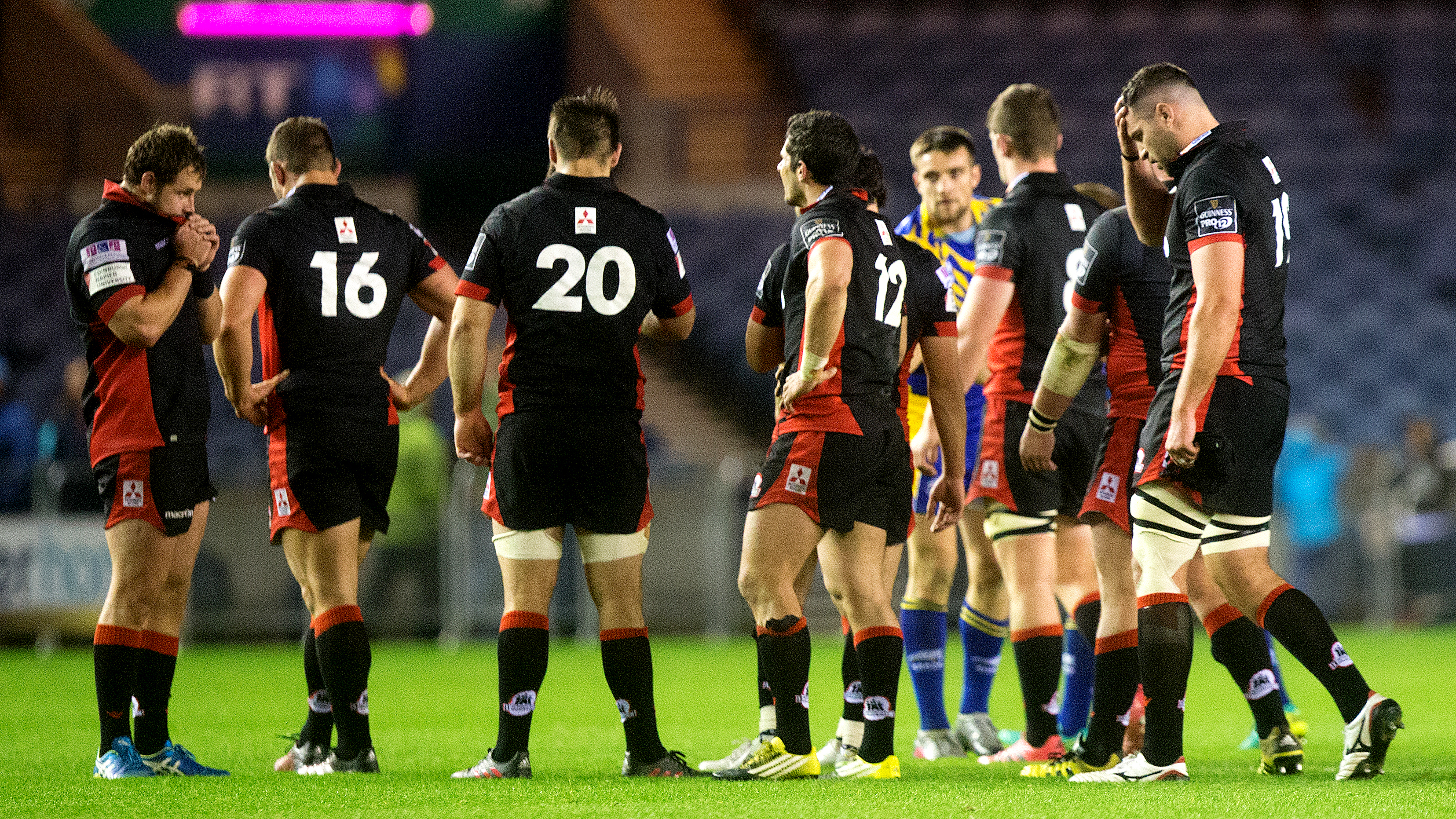No wonder Duncan Hodge looked crestfallen. The acting head coach of Edinburgh looked like a man who wouldn’t ever get the “acting” taken off his job description.
If there was a honeymoon period for Hodge after the bright start to his tenure succeeding Alan Solomons it’s ended abruptly early, with the bride on the plane home in tears and the groom drowning his sorrows back at the hotel bar.
Edinburgh’s 19-14 defeat to Zebre on Friday night is arguably the worst result in the club’s history, coming hot on the heels of one of their best, the thrilling win over Harlequins in the European Challenge Cup last week.
There’s no dressing up Friday’s loss in any way. Zebre were coming off two Champions Cup matches when they barely seemed to be playing the same sport as Wasps and Connacht, shipping a total of 122 points over the fortnight.
The Italians had won no games in the PRO12 this season and only one in all of 2016 – and that was against Treviso on January 3. They had never won a match on Scottish soil and hadn’t scored a point on their last two visits to Murrayfield. Their last visit to Scotland saw them ship 70 points to Glasgow.
But although it required a late try from Giovanbattistini Venditti with the suspicion of a forward pass to clinch the win, nobody doubted the Italians deserved victory. For an hour they contained Edinburgh with ease and although they allowed the capital side out of jail with two tries to overhaul a 12-0 advantage, Edinburgh generously walked back into the cells with three minutes left.
So the optimism generated by three wins with 22 tries scored evaporated as quickly as the again-meagre crowd vanished out of an echoing Murrayfield. Hodge’s clear philosophy to loosen the shackles on his side after three years of restricted and dull rugby under Alan Solomons backfired spectacularly.
It wasn’t lack of ambition that did for Edinburgh; they had plenty of ball and the intention to do something with it. It was more over-ambition, a lack of basic execution – especially in the setpiece – and crucially a lack of leadership.
Having got to 14-12 ahead after playing so listlessly for an hour, it was surely time to revert to “Solly-Ball”. The boring, ball up the jumper, hit-it-up gameplan of their former coach would surely have done the job for the remaining minutes and the win would have been secured, albeit fortunately.
Instead Edinburgh seemed to have convinced themselves that a bonus point try was not only possible but actually essential. They continued to fling the ball around with abandon, flying out of the defensive line for intercepts that weren’t on, and the inevitable occurred.
It was clear evidence of an inexperienced team, and there’s plenty of callow sorts in the Edinburgh side. But the loss of Stuart McInally, Grant Gilchrist and John Hardie to knocks meant that the onus fell to Ross Ford and Cornell du Preez to keep the youngsters in check, and it didn’t happen.
Jason Tovey’s departure meaning teenager Blair Kinghorn took over playmaking duties didn’t help either, although Tovey himself was trying too many heroic things himself – he was known as mercurial in Wales for a reason – before he went off.
It’s been thrilling to watch Edinburgh open out in recent weeks, but reality needs to take hold. There are times when the old style is going to be needed if the team are going to be competitive, and it needs strong figures on the pitch to ensure that individuals stop trying to win matches on their own.
Ulster, probably the strongest team in the PRO12, are the ultimate test of Edinburgh’s fragile confidence on Friday.


